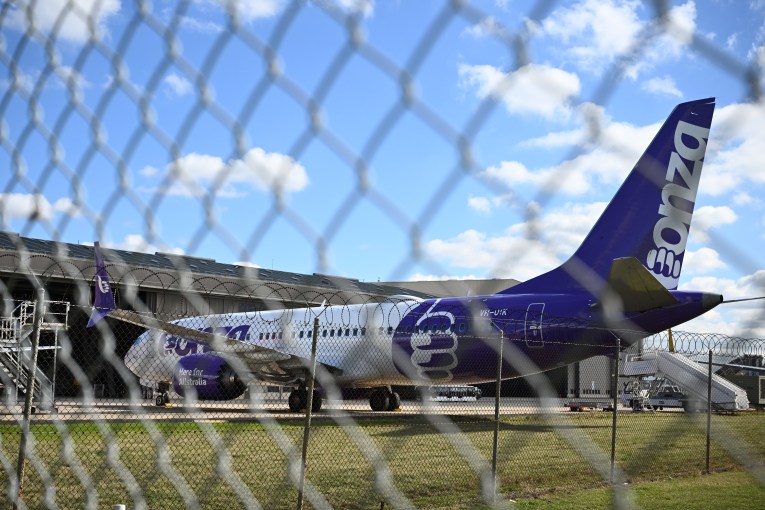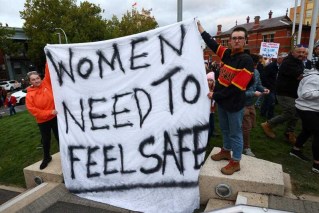‘We need to act now’: Report warns of annual $100 billion economic pain from climate inaction

Australia’s economy stands to lose tens of billions of dollars every year as tourist attractions and natural wonders like the Great Barrier Reef disappear due to climate inaction.
That’s according to a new report, released on Wednesday by the Climate Council, that predicts extreme weather events driven by climate change and the impacts of rising sea levels could cost the Australian economy $100 billion every year by 2038.
“You can imagine places like Uluru – if the temperatures get so extreme, people aren’t going to be able to go,” said Nicki Hutley, an economist and Climate Council spokesperson.
“And now with coral bleaching along the Great Barrier Reef, we’re going to lose that if we don’t act.”

Uluru in the Uluru-Kata Tjuta National Park, Northern Territory. Photo: Getty
But it’s not only our tourism industry that is set to take a hit.
The researchers analysed the impact of climate inaction on five other Australian sectors: Trade, agriculture, transport, construction and manufacturing.
Titled Hitting Home: The Compounding Costs of Climate Inaction, the report’s authors found the cost of extreme weather in Australia has more than doubled since the 1970s, costing us $35 billion over the past decade alone.
“There is no doubt that we have entered an era of consequences arising from decades of climate inaction and delay,” lead author and Climate Council spokesman Professor Will Steffen said.
Ms Hutley agreed, adding “we’ve already seen extreme heat days in Melbourne where the tram lines buckle and roads start to get degraded”.
During a heatwave in January 2018, Victorian drivers were shocked to find a 10-kilometre stretch of the Hume Freeway had melted in the summer heat.

A melted section of the Hume Freeway. Photo: Twitter
Without urgent action, the report’s authors argue that paying for the damage of climate change in the future will far outweigh the cost of measures to address it now.
“We are starting to see more and more of these extreme events, and getting to understand first hand what a world two degrees or more of warming will look like,” Ms Hutley told The New Daily, pointing to the devastating Black Summer bushfires of 2019-2020.
To avoid “catastrophe”, the report’s authors say Australia must halve global emissions over the coming decade, and reach net-zero emissions globally by 2040 at the latest.
“Everyone talks about the cost of acting to mitigate climate change, but if we don’t, there is no amount we’ll able to invest in adaptation after this that will make the economy resilient,” Ms Hutley said.
“We’re going to have these massive hits year in and year out in one form or another around the country. It’ll be like having a COVID economic downturn every single year, right across the economy.”
There will be job losses in the short term, she said, especially in the fossil fuel industry.
But that’s no reason to delay action.
“If we sensibly invest in renewable energy, if we create the opportunity now for those industries to transition, we can minimise the impact on those who are most affected in fossil fuel industries,” she said.
“On a cost-benefit basis, it is glaringly obvious we need to act now. It is just so clear now what the economic cost will be and the benefits of investing in alternative energies and lower emissions.
“The world has evolved in the last 15 to 20 years. The cost of renewables has gone down astronomically. There is no excuse not to act.”








